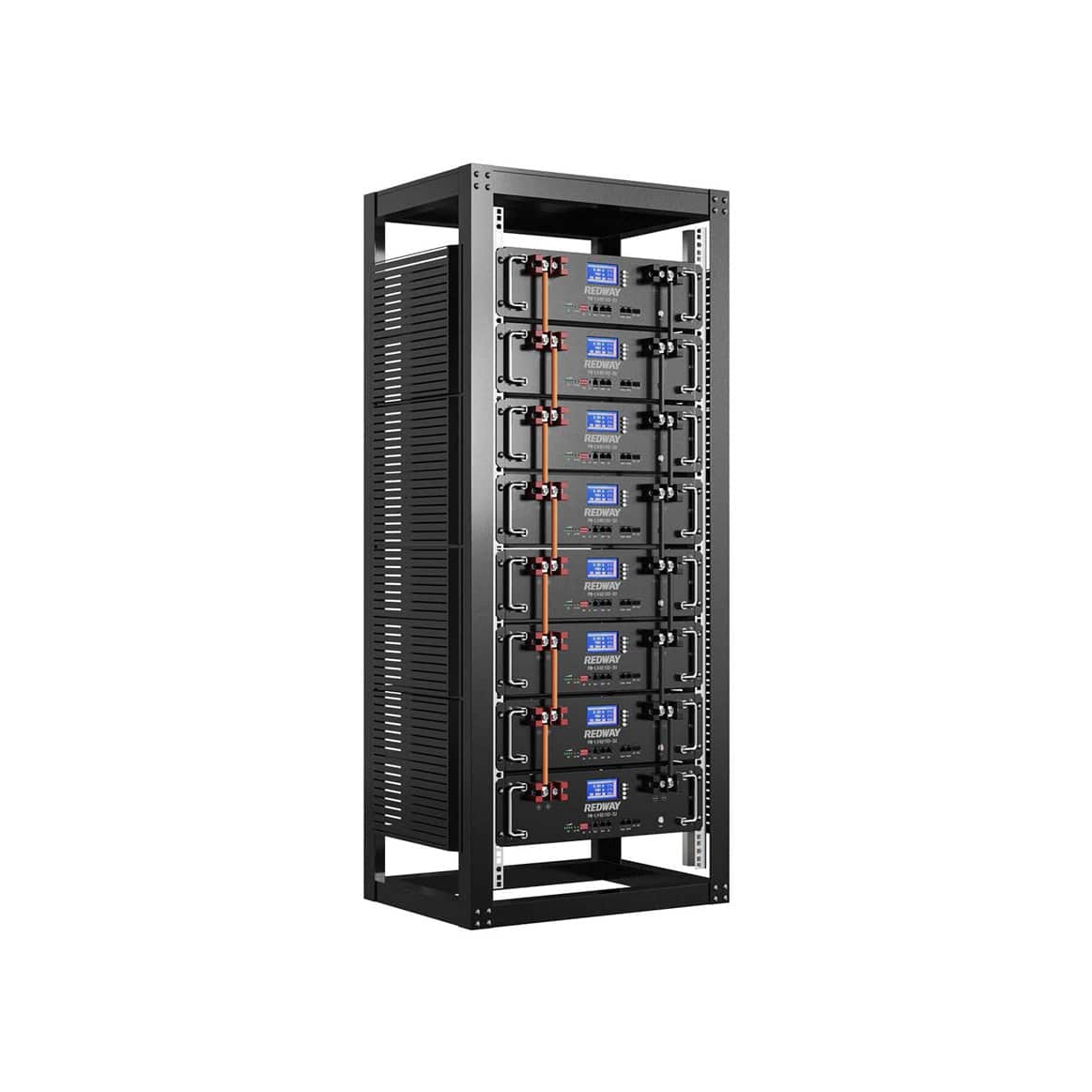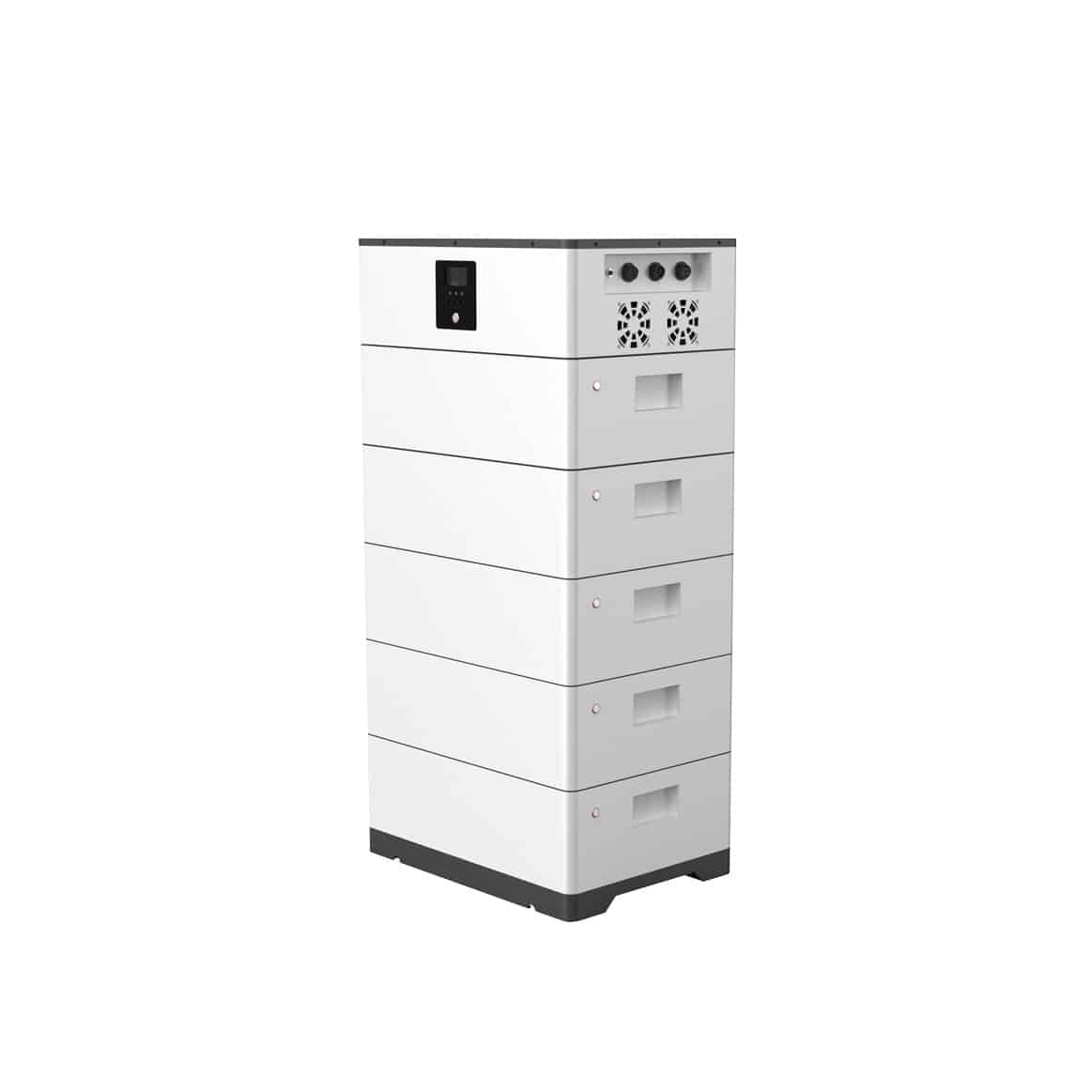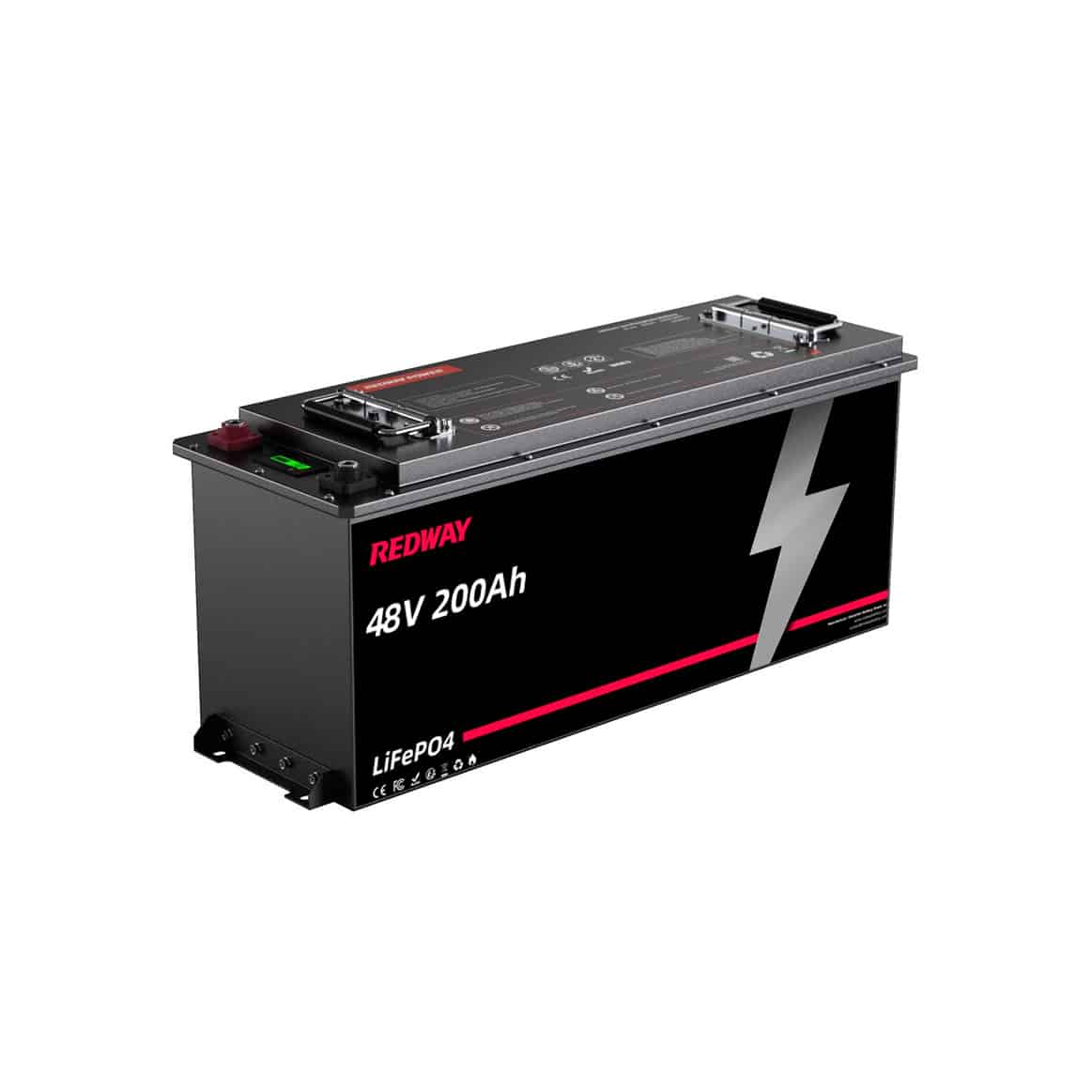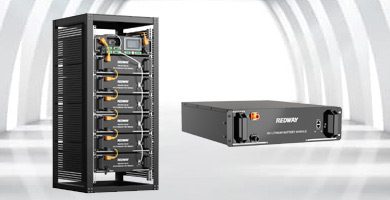
Wholesale 100V High Volage Energy Storage Lithium Battery Module OEM - The Ultimate Solutions
Interested in buying High Volage Energy Storage Battery Module at wholesale prices? We can help. Learn more about how we can work together.
Over the past 12 years, our company has been attempting to unravel the secrets that make LiFePO4 High Voltage Batteries so profitable. For more information about LiFePO4 High Voltage Batteries, including their many benefits, categories, product lines, craftsmanship, and more, click the button below.
Check Our Catalogue for 8,000 Times Deep Cycles High Voltage LiFePO4 Batteries

102.4V 50Ah 5kWh

51.2V 100Ah 5kWh
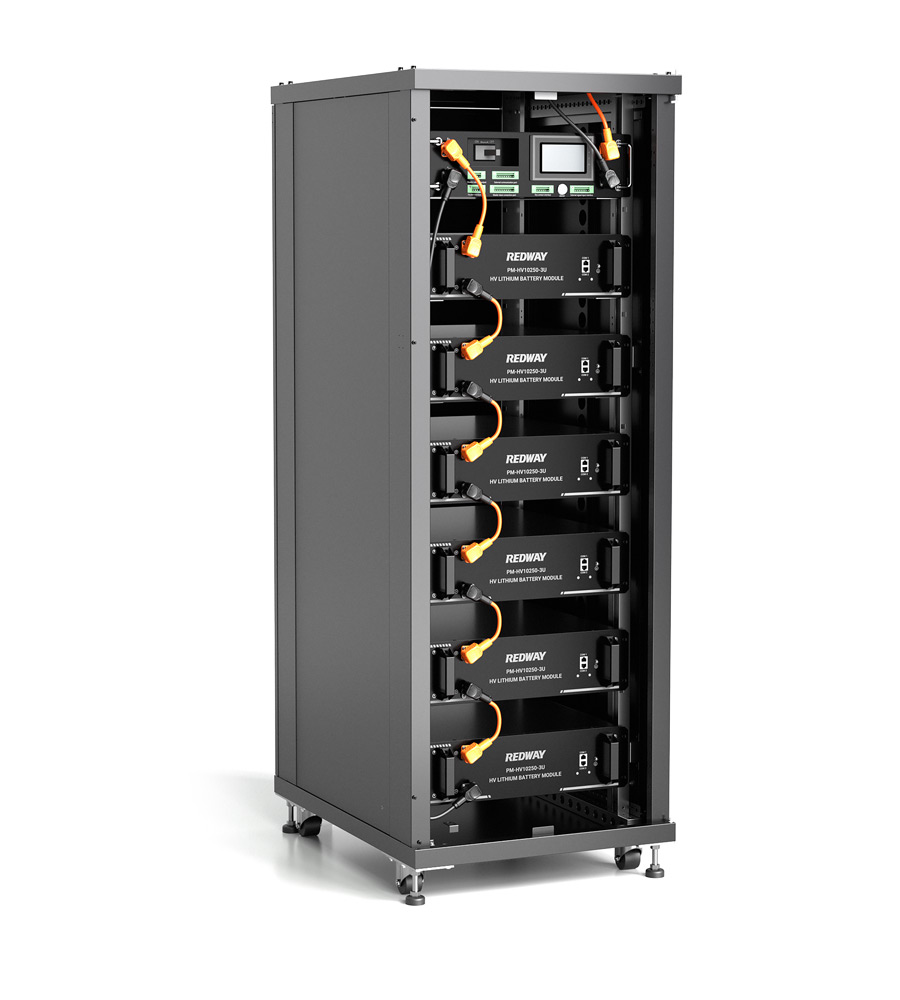
Rack-mounted High Voltage ESS System (With Advanced Smart BCU Protection)


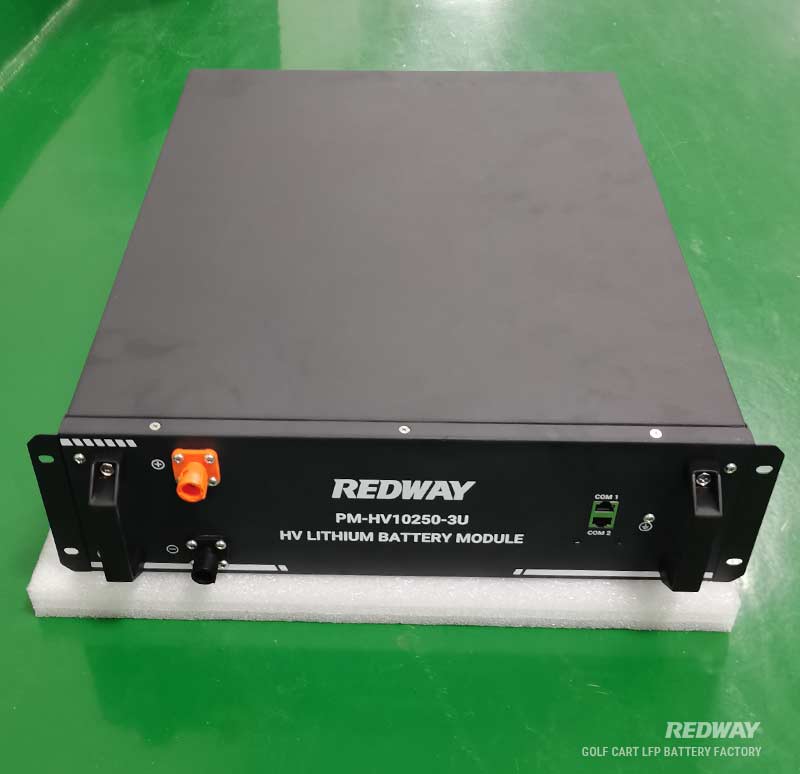
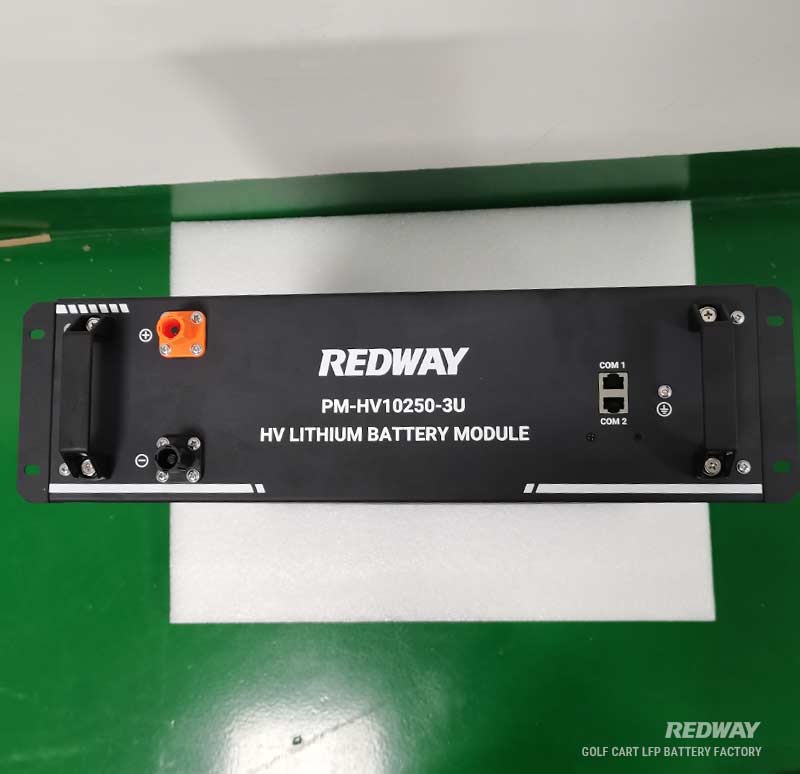
Why Choose Us?
Stay in the know!
Subscribe to our newsletter and stay up to date with the latest news and resources.
High Voltage Rack-mounted ESS Lithium Battery & System Manufacturer

High Voltage Energy Storage Battery Rack-mounted System - The Ultimate Solutions


Why choose Redway Battery?
- The highest quality batteries designed based on China quality standards, offering high performance, high durability, and excellent cycle life.
- Lead-acid batteries can be replaced with lithium iron phosphate, with options for custom battery packs and energy solutions.
- With state-of-the-art manufacturing equipment, we are able to deliver batteries in a timely manner to our customers.
- With outstanding after-sale support and the best battery replacement warranty, the company provides excellent customer service from enquiry to delivery.
- Strong OEM/ODM production ability and delivery to global customers directly
- Redway is a socially responsible company with community donations and green initiatives.
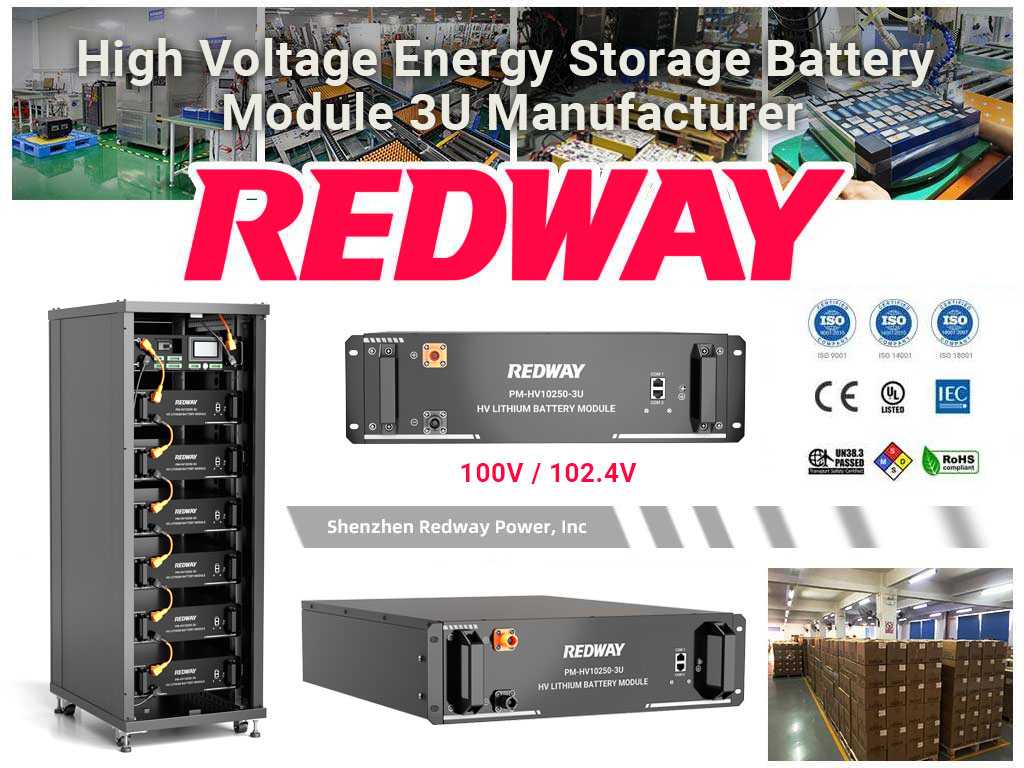
Certificates from Lithium Battery Manufacturer and Factory
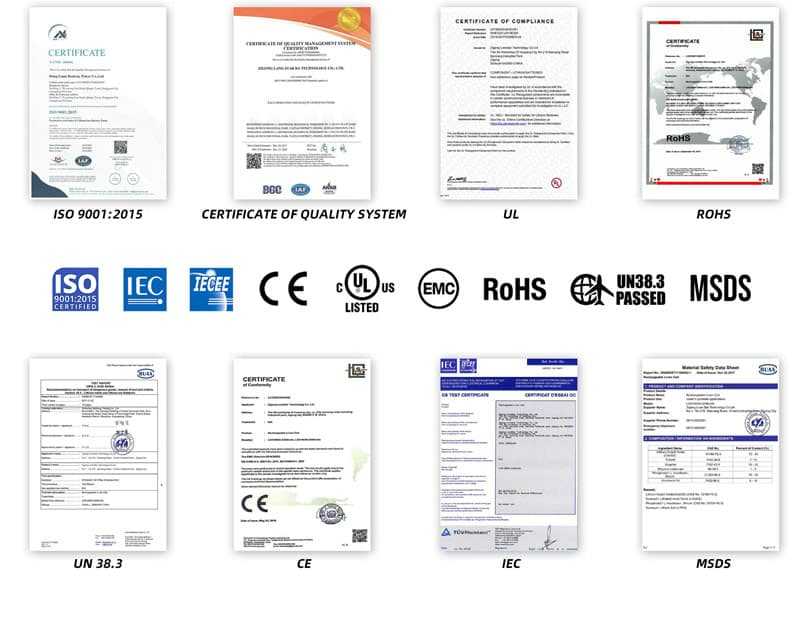
Have a Special Requirement?
Specification
Please let us know the operating voltage requirements; and if any additional functions are needed, such as 10 second discharge and 10 second charge.
Quantity
A minimum order quantity (MOQ) is not required. However, a maximum quantity will help you get a better price. The more quantity you order, the lower the price you can get.
Application
Our engineers can provide you with more suggestions under your budget if you let us know your application or details about your project.
The Ultimate Guide to LiFePO4 High Voltage Batteries
1. What are Lithium LiFePO4 High Voltage Batteries?
Lithium LiFePO4 high voltage batteries are rechargeable batteries utilizing lithium iron phosphate as the cathode material. They operate at voltages above standard lithium-ion batteries, offering enhanced energy density and efficiency for demanding applications like electric vehicles and renewable energy systems.
What is the chemical composition of LiFePO4 batteries?
LiFePO4 batteries consist primarily of lithium iron phosphate (LiFePO4) as the cathode material, graphite as the anode, and a liquid or gel electrolyte. This composition provides high thermal stability, safety, and a long cycle life compared to other lithium-ion chemistries.How do high voltage LiFePO4 batteries differ from standard lithium batteries?
High voltage LiFePO4 batteries operate at voltages exceeding 3.7V per cell, often reaching up to 600V. This allows for higher energy density and efficiency, making them suitable for applications requiring substantial power output, unlike standard lithium batteries which typically have lower voltage ratings.What are the typical applications for high voltage LiFePO4 batteries?
High voltage LiFePO4 batteries are commonly used in electric vehicles, renewable energy storage systems (like solar), uninterruptible power supplies (UPS), and aerospace applications. Their ability to deliver high power and energy density makes them ideal for these demanding environments.
2. Benefits of Lithium LiFePO4 High Voltage Batteries
What advantages do high voltage LiFePO4 batteries offer in energy storage?
High voltage LiFePO4 batteries provide several advantages, including higher energy density, longer lifespan, faster charging capabilities, and enhanced safety. These features make them particularly effective for large-scale energy storage solutions in renewable energy systems.How Do LiFePO4 Batteries Enhance Performance in Electric Vehicles and Renewable Energy Systems?
LiFePO4 batteries improve electric vehicle performance by providing consistent power output, fast charging capabilities, and a longer lifespan. In renewable energy systems, they efficiently store excess energy generated from sources like solar panels for later use, maximizing system efficiency.Why are LiFePO4 batteries considered safer than other lithium-ion batteries?
LiFePO4 batteries are considered safer due to their stable chemical composition, which reduces the risk of thermal runaway. They can withstand higher temperatures without degrading and have built-in safety features like overcharge protection, making them a reliable choice for various applications.
3. Applications of Lithium LiFePO4 High Voltage Batteries
In what industries are high voltage LiFePO4 batteries most commonly used?
High voltage LiFePO4 batteries are widely used in industries such as electric vehicles, renewable energy storage, telecommunications, aerospace, and industrial machinery. Their high energy density and safety features make them ideal for applications requiring reliable power and efficiency.How are these batteries utilized in electric vehicles and marine applications?
In electric vehicles, high voltage LiFePO4 batteries power propulsion systems, providing long range and fast charging capabilities. In marine applications, they offer reliable energy storage for electric propulsion and onboard systems, enhancing performance while minimizing weight.What role do they play in renewable energy storage systems?
High voltage LiFePO4 batteries store excess energy generated from renewable sources like solar and wind. They release this stored energy during peak demand, ensuring a stable power supply and maximizing the efficiency of renewable energy systems.
4. Installation and Setup of High Voltage LiFePO4 Batteries
How do you install high voltage LiFePO4 batteries in various applications?
Installation involves safely removing existing batteries, connecting the new LiFePO4 units according to manufacturer specifications, and ensuring proper electrical configurations. Professional installation is recommended to ensure safety and optimal performance.What safety precautions should be taken during installation?
During installation, wear appropriate personal protective equipment (PPE), ensure proper ventilation, and follow manufacturer guidelines. Avoid working near conductive materials and ensure that all connections are secure to prevent short circuits or electrical hazards.How can you integrate these batteries with existing power systems?
Integrating high voltage LiFePO4 batteries requires assessing compatibility with existing systems. This may involve using appropriate converters or inverters, adjusting settings for voltage levels, and ensuring that the battery management system (BMS) is compatible.
5. Maintenance and Care for High Voltage LiFePO4 Batteries
What maintenance practices are essential for high voltage LiFePO4 battery systems?
Essential maintenance practices include regularly checking battery health, monitoring charge cycles, maintaining optimal temperature conditions, and ensuring connections are clean and secure. Periodic inspections help identify potential issues before they escalate.How can users troubleshoot common issues with these batteries?
Common troubleshooting steps include checking connections for corrosion or looseness, monitoring charge levels, verifying the functionality of the BMS, and ensuring proper charging protocols are followed. Consult manufacturer guidelines for specific troubleshooting procedures.What indicators should you monitor to ensure optimal battery health?
Key indicators to monitor include state of charge (SoC), state of health (SoH), temperature levels, charge/discharge cycles, and any error codes from the battery management system (BMS). Regular monitoring helps maintain battery performance and longevity.
6. Choosing the Right Lithium LiFePO4 High Voltage Battery
What factors should be considered when selecting a high voltage LiFePO4 battery?
When selecting a high voltage LiFePO4 battery, consider factors such as capacity, voltage rating, cycle life, discharge rates, thermal management, and safety features. Additionally, evaluate compatibility with existing systems and the manufacturer’s reputation for reliability and support.How do different brands (e.g., A123 Systems, BYD, Tesla) compare in terms of performance and pricing?
Brands like A123 Systems, BYD, and Tesla offer varying performance levels and pricing for high voltage LiFePO4 batteries. A123 is known for high discharge rates, BYD emphasizes cost-effectiveness, while Tesla focuses on advanced technology. Prices can vary significantly based on capacity and features.What are the best models of high voltage LiFePO4 batteries available in 2024?
Top models of high voltage LiFePO4 batteries in 2024 include CATL’s 302Ah cells for durability, EVE’s 280K cells for efficiency, and GOTION’s 340Ah cells for capacity. These models are recognized for their performance in electric vehicles and energy storage applications.
7. Performance Characteristics of High Voltage LiFePO4 Batteries
How do temperature variations affect the performance of these batteries?
Temperature variations can significantly impact the performance of LiFePO4 batteries. High temperatures may increase the risk of thermal runaway, while low temperatures can reduce capacity and efficiency. Maintaining an optimal operating temperature range is crucial for longevity and performance.What is the expected cycle life of high voltage LiFePO4 batteries?
High voltage LiFePO4 batteries typically offer a cycle life of 2,000 to 5,000 cycles, depending on usage conditions and depth of discharge. This longevity makes them a cost-effective choice for applications requiring frequent charging and discharging.How does the energy density of these batteries compare to other lithium technologies?
LiFePO4 batteries generally have a lower energy density (90-160 Wh/kg) compared to other lithium technologies like lithium nickel manganese cobalt (NMC) or lithium cobalt oxide (LCO). However, they compensate with superior safety and thermal stability.
8. Safety Features and Considerations
What safety features should be included in high voltage LiFePO4 battery systems?
Safety features in high voltage LiFePO4 battery systems should include thermal management systems, overcharge protection, short-circuit protection, cell balancing mechanisms, and robust Battery Management Systems (BMS) to monitor performance and prevent failures.How can users prevent overheating and other risks associated with lithium-ion technology?
To prevent overheating and risks associated with lithium-ion technology, ensure proper ventilation during operation, use quality chargers with built-in protection features, monitor temperature regularly, and avoid exposing batteries to extreme temperatures or conditions.Why is a Battery Management System (BMS) critical for safety and performance?
A Battery Management System (BMS) is crucial for monitoring battery health, ensuring safe charging/discharging cycles, balancing cell voltages, and providing protection against overcurrent or overheating. It enhances overall safety and optimizes the performance of high voltage LiFePO4 batteries.
9. Environmental Impact and Sustainability
How do lithium iron phosphate batteries contribute to sustainable energy solutions?
Lithium iron phosphate (LiFePO4) batteries enhance sustainable energy solutions by offering long lifespans, high efficiency, and safety. Their recyclability reduces environmental impact, while their use in renewable energy systems helps store excess energy, promoting cleaner energy consumption and reducing reliance on fossil fuels.What recycling options exist for used high voltage LiFePO4 batteries?
Used high voltage LiFePO4 batteries can be recycled through specialized facilities that employ physical and chemical processes to recover valuable materials like lithium, iron, and phosphorus. These materials can then be reused in new battery production, minimizing waste and conserving resources.Why is it important to consider environmental factors when choosing a battery technology?
Considering environmental factors is crucial when selecting battery technology to minimize ecological impact. Sustainable practices, such as recycling and resource conservation, help reduce pollution, lower carbon footprints, and ensure responsible sourcing of materials, supporting a healthier planet.
Relevant Questions
What is the average lifespan of a lithium LiFePO4 high voltage battery?
The average lifespan of a lithium LiFePO4 high voltage battery typically ranges from 6 to 10 years, depending on usage conditions and maintenance. With proper care, some batteries can even last up to 20 years, making them a durable option for various applications.Can I use a high voltage LiFePO4 battery without a solar panel system?
Yes, high voltage LiFePO4 batteries can be used independently of solar panel systems. They are versatile and can power various applications such as electric vehicles or backup power systems without being connected to renewable energy sources.How much do lithium LiFePO4 high voltage batteries typically cost?
Lithium LiFePO4 high voltage batteries typically cost between $300 to $700 per kWh, depending on capacity and manufacturer. While the initial investment may be higher than other battery types, their longevity and efficiency often lead to lower total costs over time.Are there compatibility issues with existing electrical systems when using these batteries?
Compatibility issues may arise when integrating high voltage LiFePO4 batteries with existing electrical systems. It’s essential to ensure that the voltage and current ratings match the system’s specifications and that appropriate converters or inverters are used for seamless integration.What are the best practices for charging and discharging high voltage lithium batteries?
Best practices for charging include using compatible chargers, avoiding overcharging, and maintaining optimal temperature conditions. For discharging, avoid deep discharges below 20% capacity to prolong battery life and ensure consistent performance during use. Regular monitoring is also recommended.

